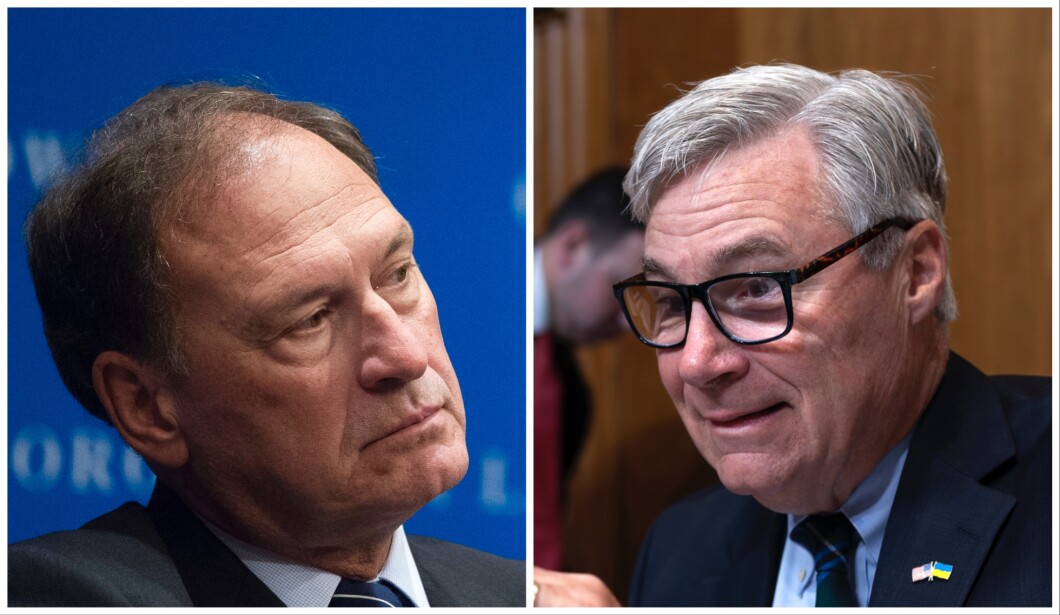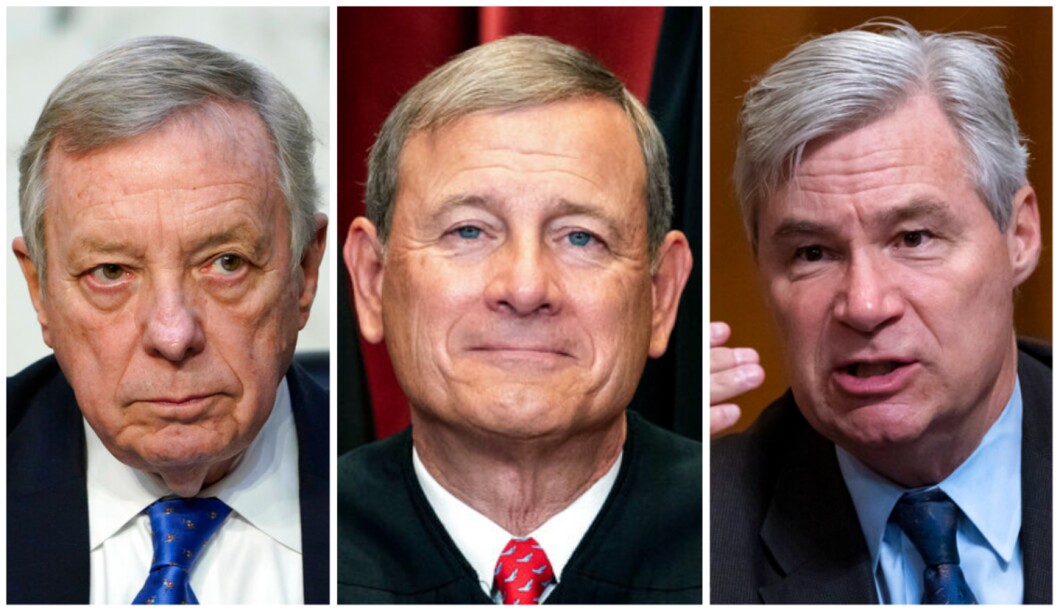
Sen. Sheldon Whitehouse (D-RI) has called for an investigation into Justice Samuel Alito over his recent comments downplaying Congress’s ability to impose a code of ethics on the Supreme Court.
Whitehouse penned a seven-page letter urging Chief Justice John Roberts to “take whatever steps are necessary” to investigate Alito following his remarks to the Wall Street Journal that there’s “no provision” in the Constitution giving Congress the authority to regulate the high court.
MASSACHUSETTS TEACHERS UNION WANTS TO END STANDARDIZED TEST REQUIREMENT FOR GRADUATION

“On the Senate Judiciary Committee, we have heard in every recent confirmation hearing that it would be improper to express opinions on matters that might come before the Court. In this instance, Justice Alito expressed an opinion on a matter that could well come before the Court,” Whitehouse wrote.
Whitehouse introduced the Supreme Court Ethics, Recusal, and Transparency Act in July, citing a need to restore the public’s “sinking trust” in the high court by requiring more detailed disclosure and transparency to address “recusals and conflicts of interest.”
Alito told the Wall Street Journal on July 28 that he and other justices on the Supreme Court voluntarily follow disclosure statutes that apply to lower court judges and executive branch officials.
“Congress did not create the Supreme Court”— the Constitution did — adding, “I know this is a controversial view, but I’m willing to say it. No provision in the Constitution gives them the authority to regulate the Supreme Court — period.”
Whitehouse told Roberts in his letter that he felt “acutely the targeting” of his bill, saying he considers it “more than just misguided or accidental general opining. It is directed to my work.”
“The Senate Judiciary Committee’s investigation encompasses reports that Justice Alito accepted but did not disclose gifts of travel and lodging valued in the tens of thousands of dollars,” Whitehouse wrote, likely in reference to the nonprofit outlet ProPublica, which reported about a one-time fishing trip Alito took to Alaska in 2008, which was hosted by hedge fund billionaire Paul Singer.
“Further investigation may reveal additional information that Justice Alito would prefer not come to light. The facts as already reported suggest that Justice Alito likely violated the financial disclosure requirements of the Ethics in Government Act,” Whitehouse told Roberts.
Alito’s words in the Wall Street Journal sought to discredit ProPublica, not by denying the trip with Singer and company, but by arguing the nonprofit “misleads its readers.”
“When I joined the Court and until the recent amendment of the filing instructions, justices commonly interpreted this discussion of ‘hospitality’ to mean that accommodations and transportation for social events were not reportable gifts,” Alito said, adding that Singer allowed him to fly aboard his private plane en route to Alaska.
Whitehouse declined to ask Roberts to take any specific action on a proposed ethics code or against Alito.

The chief justice declined a request from the Senate Judiciary Committee, which Whitehouse is a member of, to testify before the panel in late April.
Roberts’s letter to committee Chairman Dick Durbin (D-IL) explained that testimony before the Senate Judiciary Committee by chief justices has been “exceedingly rare – as one might expect,” but attached a “Statement on Ethics Principles and Practices,” with the names of all the current justices in his letter declining to testify.
CLICK HERE TO READ MORE FROM THE WASHINGTON EXAMINER
The Supreme Court has for years been working in private to come up with a novel code of conduct that they can all support, but such work has been stalled due to a lack of congruence among the nine members.
Justice Elena Kagan, one of three Democratic-appointed justices alongside Sonia Sotomayor and Ketanji Brown Jackson, countered Alito last month during a conference in Oregon, saying she believes Congress “can regulate various aspects of what the Supreme Court does.”





